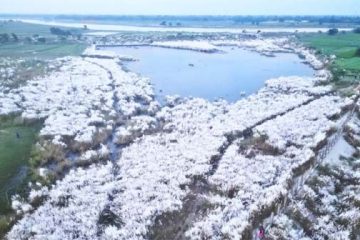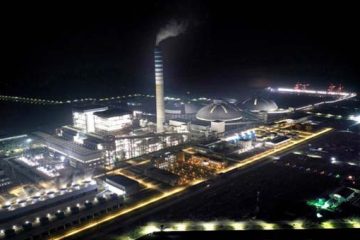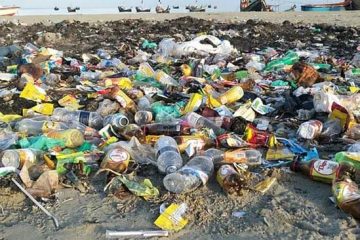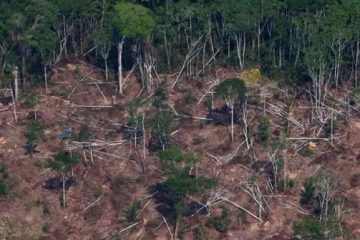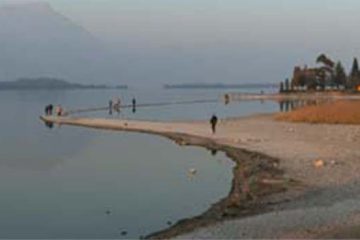Md. Mahbubul Huq for The Daily Star
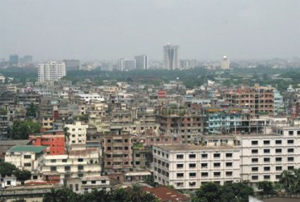 The engine behind a city is, apparently, its mayor. He is the chief of local government administration. Local government administration is responsible for providing services such as: fire safety, police protection, any emergency services, public school, water and sewerage, city planning, maintaining local environmental health, garbage collection, public transportation. Other services provided include: recording births, deaths and marriages; managing public burial sites, public parks, open spaces and other public land.
The engine behind a city is, apparently, its mayor. He is the chief of local government administration. Local government administration is responsible for providing services such as: fire safety, police protection, any emergency services, public school, water and sewerage, city planning, maintaining local environmental health, garbage collection, public transportation. Other services provided include: recording births, deaths and marriages; managing public burial sites, public parks, open spaces and other public land.
Local government functions at city, town or other levels and is the operation of a government closest to where people live. It has specific powers and functions not covered by other form of government. It is responsible for collection of taxes for services and ordinances on zoning. The mayor is the head of city council and has voting and veto rights as a part of this council. He is also in charge of the city budget and supposedly making sure city services are delivered.
But mass transit system, water and sewerage system, and annexing or zoning of land in Dhaka city are not under the purview of the mayor. Building plan permits are considered by the local government entity at appropriate levels whereas for Dhaka it is Rajuk. Water permit is considered by Dhaka Wasa which was previously under the local government. His scope to perform is grossly clipped.
In spite of a local government organization, most of the development programmes of Dhaka City Corporation (DMC) are implemented by an assortment of entities under different ministries apparently at the discretion of the policy makers. This flawed principle is the root of all miseries pertinent to the people such as: endemic traffic congestion choking streets, water supplied unfit to drink, bylanes-lanes-roads inundated with sewage in some localities, knee-deep water logging after a rainfall, air polluted with life threatening particles, river water polluted with traces of deadly toxic substances and acute shortage of parks. People are hapless; they do not know where to go to seek remedy.
The said entities cannot be reached for any incompetence, negligence as they remain protected in the cocoon of government service. On the other hand it would not be so, had the mayor been in charge for he owes explanation to the people about his performance. His capacity to deliver services is severely restricted whereas entities foreign to local government are over stepping on his turf. Dhaka local government is not merely a question of moving headlong on sketchy programmes but an environment of unencumbered authority.
For any attempt to ease the sufferings of the people circumventing the mayor, probability of faulty ideas in the initiatives will be random. Let us consider a few. Residential plot allotment in thousands under the Uttara (3rd phase) and Jhilimilee project in 2009; fresh invitation for another 1200; for low-income people 94,000 units of flats; towns opposite the rivers around the city; 6 km elevated road all under the ministry of works and another 26 km long under the ministry of communications. Majority of plots would be developed into 10 or even 14 storied apartment buildings soon. People in lacs would move in to occupy. Zoning for business, education, health, shopping and entertainment for them need to go with the plots. But there is no zoning as such. They will have to count on Dhaka as those from Uttara are doing.
The same Dhaka dependency crisis applies to the towns and to the flats projects. If the idea is relieving population pressure on Dhaka then it will not only fail, may render it inhabitable instead. I wonder whether the population of Dhaka is taken into account while planning.
The under construction elevated road network is dangerous from earthquake point of view. It may get inclined or ruptured in case of intense quake. Failure of this kind was sighted in California in 1971, 1989 and in Kobe of Japan in 1995. Implementation of the mammoth network at a huge cost covering the city may turn out to be suicidal when possibility of immediate earthquake is ripe. One may raise question as to the sense in similar work in progress in New Delhi and Kolkata of the neighbouring country. As far as it is known, there is no immediate danger of earthquake there. If the city population along with car, jeep and microbus keeps on growing, clogging of elevated road may be a possibility as the roads are not of infinite capacity.
The distortion suffered so far in the character of the city and DMC dwarfed in the process is beyond remedy. On top of that the city to remain as the capital and to draw up plans to further it has been adopted as a policy. In that case, financial growth will converge on an already crowded Dhaka, indications of which are visible on the city outskirts. It would economically stifle the rest of the country whereas Dhaka will expand by leaps and bounds, the extent of which is beyond imagination.
It will also attract people like a magnet to benefits which are not available to them. Living with blunders of this scale, one may be compelled to abandon the city at some point of time. Therefore it is imperative to take course before it is too late.
There may be two choices left for a way out: 1) to transform the city into a federal capital, 2) to locate the seat of the government (capital) about 50 km away and connecting it to Dhaka with a high speed link. There are examples like Putrajaya for Kualampur and Islamabad for Karachi.
For the first choice, there will be high court and secretariat in the province. Health facilities, educational institutions, business district, trading place, service industry will naturally spring up. Expatriates may think of living in their own province and may feel comfortable to invest there. Household expenses may go down as a result and as such may be considered a substantial gain to the general public. Grains from one’s own field would be considered a bonus. The province may undergo a grinding change that may cause steady growth, an important objective in development economics. In case of natural calamities provincial government may respond at a shorter notice.
For the second one, government functions may be performed in a quiet, tidy and nice environment and inherent erosion in the quality of the mother city may slow down as a result. Parks and programme conducive to healthy and peaceful living may be taken up in the city. The secretariat may lead the procession of government establishments to the new capital town. As a consequence population pressure on Dhaka may drop. Tidy, nice and habitable Dhaka may emerge, be it with or without the seat of the government.
People of Dhaka are to decide which Dhaka they want. It sounds reasonable, to seek a mandate from them on it. The proposal may be completed in a period stretching over 20-25 years. Levying tax may be considered. Large area of land and huge amount of fund may be required. The government has successfully raised fund for the ‘Padma Shetu’, to do the same for Dhaka would not be a difficult task. But yes, if and only if the general public and the government are in agreement.
The writer, an architect, is former Director, Engineering Division, Bangladesh Atomic Energy Commission. e-mail: mhuq99@yahoo.com

